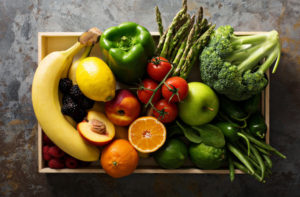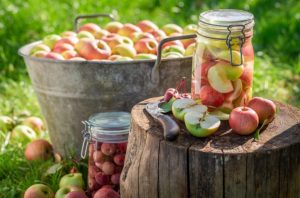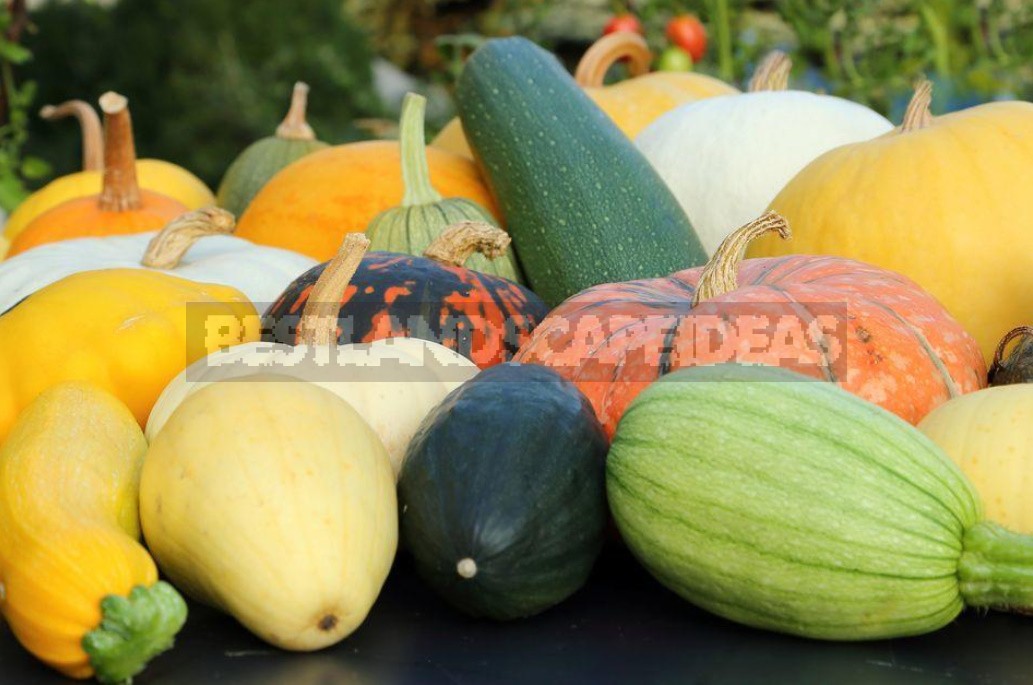
Having grown an excellent crop of pumpkins, zucchini or squash, many people think: what should we do with them now? Perhaps today’s conversation about the beneficial properties of these vegetables will help you look at them in a new way and tell you how to use the results of your work to promote health.
What are pumpkins rich in
In terms of the content of useful substances, pumpkin, squash and squash are somewhat inferior to other vegetable and fruit crops, but pumpkin are indispensable in dietary nutrition. They are easily absorbed by the body, but they are low in calories; due to the large amount of fiber, they have a beneficial effect on the functioning of the digestive system; they help to remove excess cholesterol and toxins from the body; they normalize salt metabolism and improve kidney function.
Pumpkin seeds have a high content of sugars (glucose, fructose and sucrose) — up to 14%. The carotene in the bright orange pulp of pumpkin is more than in carrots. It also contains a lot of potassium, calcium, phosphorus, magnesium, iron, vitamins B1, B2, B3, and E.
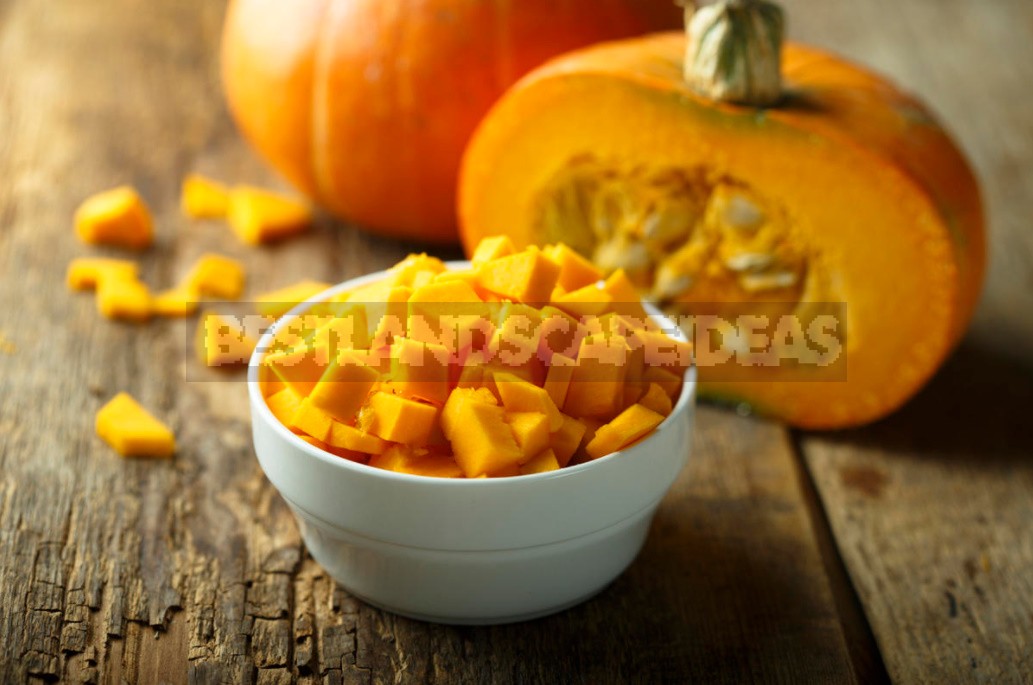
Very valuable medicinal raw materials are pumpkin seeds, which contain up to 20% of fatty oil, essential oils, amino acids, proteins, vitamins and other substances. Pumpkin seeds are used to make oil that has many medicinal and preventive properties. Unfortunately, it is unlikely to be possible to make it at home: the technology is time-consuming, and to get 1 liter of this (by the way, quite expensive) product, you will need at least 2.5 kg of seeds (for reference: one pumpkin, depending on the variety, can give up to 100-150 g of seeds).
What diseases will help pumpkin and zucchini
Perhaps the first thing that many will remember when it comes to the healing properties of these crops is the anthelmintic effect of pumpkin seeds. Indeed, raw peeled pumpkin seeds have long been used by traditional medicine to expel tapeworms, and the effectiveness of such a simple and affordable tool is very high. And, last but not least, it is non-toxic, has no side effects and has no established contraindications, so it can be used, including in the treatment of children older than 3 years.
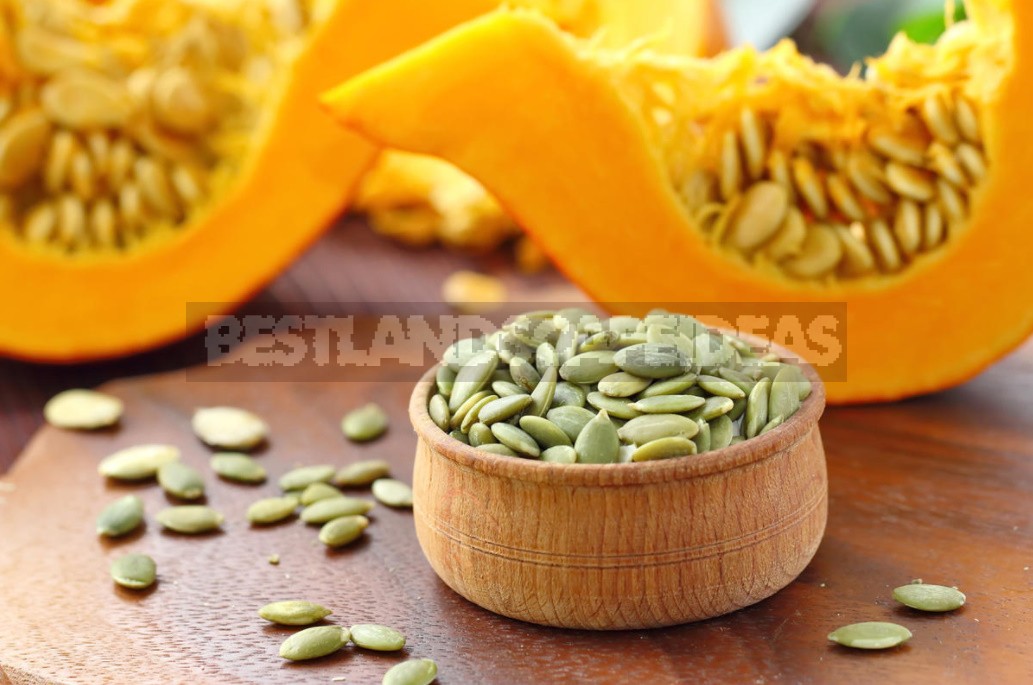
In addition, pumpkin seeds can play an important role in the prevention of prostate adenoma and its treatment in the early stages. The pharmacological preparation peponen, used for this disease, is made on the basis of pumpkin seed oil. Men over 45 years of age are recommended to eat peeled seeds daily (2-3 tablespoons — for preventive purposes; if the disease has already declared itself — 0.5 cups of seeds per day).
Pumpkin juice (freshly prepared) is used as a diuretic, choleretic and metabolism-enhancing agent. Drink it 1-3 glasses a day for diseases of the kidneys and bladder, liver and gallbladder, heart and blood vessels (especially accompanied by edema); the course is 1 month, after a 10-day break can be repeated. Fresh juice or decoction of pumpkin with honey (1/3 Cup before going to bed) is used as a light remedy for insomnia.
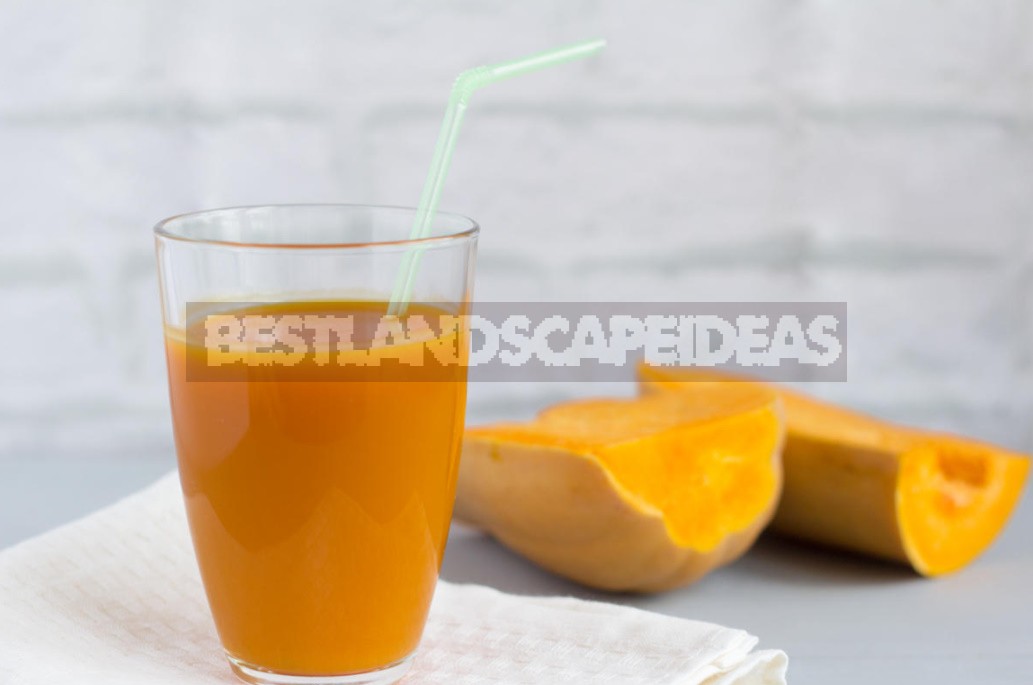
Pumpkin pulp is used for medicinal purposes mainly in raw form. It has a pronounced laxative effect and is recommended for constipation — 0.5 kg per day (in several doses). In the same dosage, fresh pumpkin is used as a diuretic and choleretic agent. For diseases of the cardiovascular system that are not accompanied by edema, as well as for the prevention of atherosclerosis, it is recommended to eat 100-150 g of this product daily.
Externally, pumpkin pulp is used for burns, eczema, pimples, rashes, wounds, and various skin inflammations — a gruel of grated pulp accelerates healing and reduces inflammation. Similarly, a decoction of pumpkin flowers is used.
In case of obesity (and for its prevention), it is very useful to include a variety of pumpkin dishes in the diet: by causing rapid saturation, they allow you to reduce the amount of food consumed without experiencing discomfort. At the same time, the low calorie content of these products, their beneficial effect on metabolism and digestion, as well as the ability to bind and remove toxins from the body help to effectively reduce weight and heal the body.
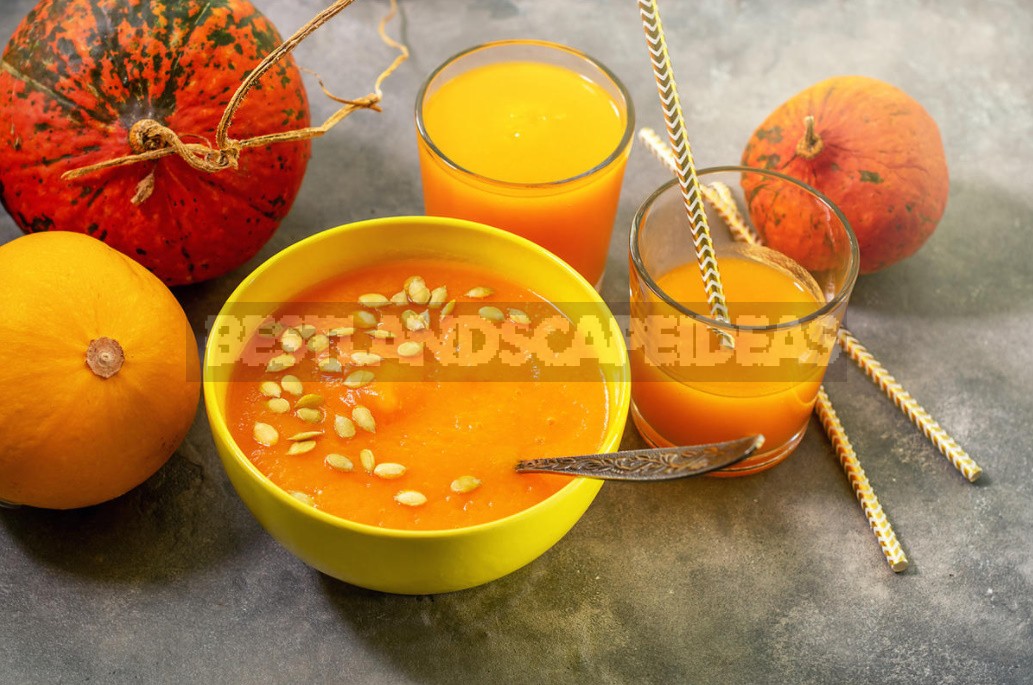
Zucchini, squash and pumpkins are also useful for hypertension, chronic diseases of the digestive system, gout. Older people are advised to regularly eat dishes made from pumpkin vegetables to prevent diseases and slow down the aging process.
What are the contraindications?
And there are no contraindications! These amazing vegetables can be eaten by everyone. The exception is, perhaps, only acute disorders of the gastrointestinal tract, accompanied by diarrhea,-in this state, the laxative effect of pumpkin will be superfluous. Well, to abuse these products (as, indeed, any other), of course, is not worth it. And in moderation and with pleasure — eat to your health!
